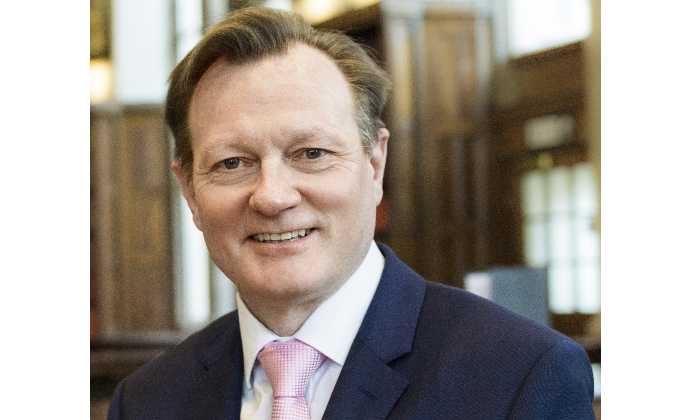Dean’s update
06 Apr 2017
The latest from Professor Ian Greer

As you may have read in the President’s update, I accompanied Nancy to a meeting at Salford Royal Foundation NHS Trust last week to discuss the development of a joint strategy on neuroscience and how we can work together with our MAHSC partners to ensure a co-ordinated, joined-up approach to this key area of research.
Our discussions centred on how we can maximise opportunities to secure additional resources and funding to further develop neuroscience research at Manchester. Given the clinical and research strengths in Manchester we believe that we can realise our ambitions to deliver ground breaking research that will impact on patient outcomes in areas such as stroke, brain cancer and dementia. Specifically we aim to have neuroscience as a strong theme in our next NIHR BRC application, so it is critical to start planning now even although the next application is some years away.
Our Current BRC focuses on cancer, hearing health, dermatology, and musculoskeletal and respiratory diseases. However, there are substantial synergies already in place between neuroscience and these themes, such as in precision medicine, inflammation, cancer and imaging science. With our excellent science, outstanding clinical services and committed clinical and scientific leadership, there are very exciting opportunities ahead for this collaboration!
Last week I was in London for a meeting of the Medical Research Council’s Translational Research Group; and on Friday I attended a meeting of the Greater Manchester Health and Social Care Partnership Board, which took place in Bury Town Hall where a paper was approved supporting the development of Health Innovation Manchester or HInM. HInM is new approach that integrates the innovation pathway from discovery science through to clinical commissioning and better patient outcomes. This is unique to Manchester because of health devolution and so we can deliver the innovation into health and social care that our population needs. It will also be attractive for industry collaborations and already we have a memorandum of understanding with the ABPI to work in partnership in developing new medicines
On Wednesday last week I presented the Faculty Distinguished Achievement Awards in the Michael Smith lecture theatre. Hosted by our Director of School Operations Simon Merrywest, this annual event celebrates the achievements of our PSS colleagues, and this year the individual prize went to Research Technician Nicola Begley, while the Project and Learning Technology Team in the School of Medical Sciences won the team award. Congratulations to our worthy winners and also to all those who received commendations: Kenny Borland, Sue Knight, Anthony Steel, Neil O’Hara, Jessica Bowler, Helen Eccles and the PGT Team in the School of Medical Sciences.
I’d like to offer further congratulations to School of Health Sciences colleagues who were responsible for three successful programme accreditations: the Doctorate in Clinical Psychology, which has been accredited by the British Psychological Society; the BSc/M in Speech & Language Therapy, accredited by the Health and Care Professions Council; and the BSc/MSci in Optometry, accredited by the General Optical Council. I know full well how much time and effort goes into programme accreditation, so we really appreciate the hard work, commitment and expertise in delivering these achievements – well done!
I’m also pleased to share the good news that the Division of Medical Education, following a bid to HEFCE, will be able to offer an additional 25 places per annum from 2017/18 for the MBChB course. This follows the recent decision by the Department of Health to create an additional 500 places for UK-based students in HEFCE fundable medical schools. This is part of the national initiative to increase the number of UK Doctors. In addition to these 500 new places created this year, a further 1000 places will follow next year, so we will be able to bid for more next year.
The Government is also lifting the cap on the number of places for new international medical students (currently capped at 7.5% of our total number); however at the same time, it is withdrawing the clinical placement grants to the NHS that support clinical training for this group, so the cost of clinical training will now need to be met. These changes raise some important issues for our course so we are now consulting on the implications of these changes – principally on how the clinical fees for new overseas students will be paid to the NHS going forward and what this means for the number of overseas students we can attract. These developments will also have implications for the proposed development of a new Greater Manchester International Medical School, which we are now working through with our partners.
Finally, could I please remind colleagues who haven’t yet completed the 2017 Staff Survey to do so as soon as possible. We really value your views. If the University is to meet its ambitious Manchester 2020 goals we need you to feel motivated and highly valued, so knowing what you and your colleagues think is important to us so we can identify and address key issues. The survey closes on Monday 18 April. The Faculty currently has a response rate of 53%. I would appreciate having responses from many more of you as we have some way to go before we achieve our 75% target that gives us a good representation of views.
Ian Greer
Vice-President and Dean
Faculty of Biology, Medicine and Health
